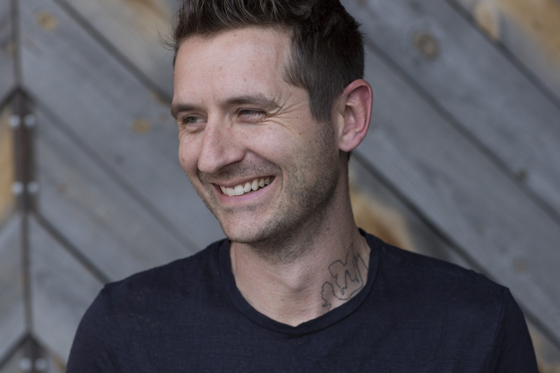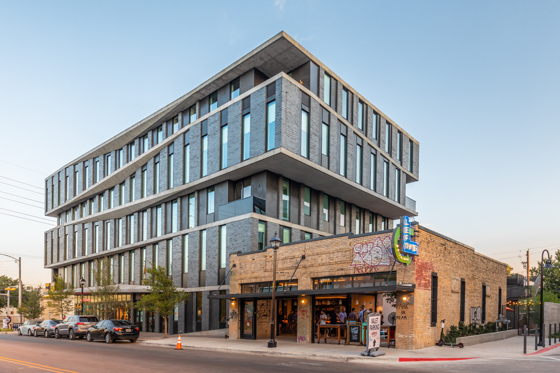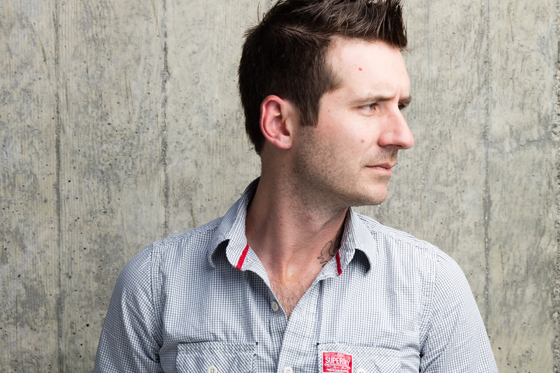Hotels positioning themselves to play bigger roles in their local communities has been among the most prominent industry trends of the past five years. During the pandemic, however, Chris Pardo has flipped the idea of being part of a community from the outside to the inside.
Pardo, co-founder of design-centric boutique brand Arrive Hotels & Restaurants, has openly and proactively reached out to his hotelier brethren to share ideas about how to better manage through COVID-19 and to empathize with each other.
“Every 15 minutes there’s a new challenge,” said Pardo, who along with longtime friend and now partner Peter Karpinski (co-founder of Sage Restaurant Group in Denver) have been very busy growing Arrive to five hotels across the U.S. since its inception in 2011.
“We had our heads buried in the sand just developing. But when COVID hit we started talking to other hotel operators to find out what they’re thinking about the market,” Pardo said. “Most of the responses we got were pretty similar – everyone’s guessing, hoping and has their fingers crossed. We are guessing what actually will happen and are preparing for the worst case. We’ve had a lot of interesting conversations, though, and I think it is great for us to make these connections and feel more comradery.”

Pardo, who has been working from his Houston, Texas, home for several months now, recommended the practice to the greater hotel community. “Don’t be afraid to reach out. We are a small community, really, when it comes down to it, and everyone that we talk to is super willing to be open and honest,” he said. “A lot of the things, probably, won’t apply to your property, project or role, but a lot of things will… Hearing what others are doing provides a lot of comfort.”
Perhaps those conversations gave Pardo a perspective that has him believing the hotel industry will come back strong once consumer confidence increases. Or maybe he’s led by the sign in his home office that reads, “When you’re going through hell, you just keep going.”
“Yeah, it’ll be different somewhat, but I’d hold out if you can,” Pardo added. “Like I said, don’t be afraid to ask for help. It’s really hard. When you are starting a company in any industry, you feel like you’re responsible for everything and it’s tough to ask for help… Engage with other people and see how you can do a better job. Put away your pride a little bit. Doing that and really listening is super important. I’m going to do more and more of that.”
In the meantime, the Arrive team is taking the approach that life will go on, as will the brand, which opened its first hotel in 2016 in Palm Springs, California. “Human beings are social people,” said Pardo, who has a hospitality degree from UNLV, worked for Four Seasons Hotels and Resorts out of school and eventually became an architect with his own firm.
“Our industry is about providing an experience, comfort and safe environments. We will be doing this forever. We know it will come back. Right now, it’s knowing how to make the right decisions so that you still exist in a few years. That’s the hard part.”
Controlling the burn
Pardo and Karpinski, along with partners Ezra Callahan (the sixth employee at Facebook, according to Pardo) and Matt Steinberg, made swift adjustments to operations, including furloughs, to control cash burn once the impact of the pandemic became clear to them.
All five owned and operated hotels (a mix of new-builds, conversions and adaptive reuse) are open today, along with all but two self-operated F&B outlets. In addition, they recently completed building permits for developments in New Orleans, Louisiana, and Albuquerque, New Mexico.

What has truly helped Arrive get by, according to Pardo, is its ability to operate with lean line-level teams and emerging staycation markets where Arrive’s extensive outdoor space for both F&B and more privacy are appreciated.
“Our properties, partly because of our love for mid-century modern, ended up with a lot of exterior corridors,” Pardo explained. “So that, along with more outdoor space, drove occupancy because people feel a bit more comfortable being in those situations.”
In fact, the Arrive in Palm Springs, California, over the past three months was running at a mid-70s occupancy and its highest ADR during what is traditionally the slow season with its hot summer temperatures.
Conversely, the urban property in Austin, underwritten with the group’s highest ADR and occupancy levels, has been struggling the most in what now operates as an over-built market. Popular bars and restaurants have been closed and the convention business is all but non-existent.
“So now, we’re all competing for a very small amount of market with a lot of great product,” Pardo said. “Over the last three weeks (in late September), it has gotten substantially better, but still, it’s going to remain a challenging market for us.”
Because staff are cross-trained it helped manage through necessary staff reductions. “We definitely are going to invest more and more into that because we’ve seen a huge benefit,” Pardo said, adding that staff morale for the most part is good because they feel more connected to the operation and better understand how everything works.
In general, the hotels over the past two have performed better than expected, Pardo added, but optimism isn’t exactly overflowing. “We’re bleeding like everyone else,” he said. “But we have done a good job of getting our systems in place, especially our food and beverage venues.”
For example, at the Austin hotel’s Vixen’s Wedding restaurant, a prix fixe menu at a higher price point was instituted and well received. “Our profit margin on it has gone up. Obviously, top line revenues have gone substantially down, but we’re performing better as a restaurant,” Pardo said.
Other restaurants have pared down menus to meet levels of demand and control costs. “We’ve been really successful to keep restaurants profitable,” Pardo said. “We’re nowhere near the top line revenue that we were at, but, on a margin, it’s been successful.”
Looking ahead on the F&B side, where expectations for US$3.5 million in revenue at individual properties with multiple outlets have to be reduced to as little as US$500,000, some rethinking on investments is happening.
“Rather than full-service restaurants, should they be coffee shops or retail spaces, or do we consider joint ventures with other operators taking those spaces?” Pardo pondered. “We really have to balance not stripping ourselves from why guests are staying with us in the first place. That’s tricky balance and it might end up being a combination of more socially distant outdoor spaces, operating just one of the restaurants and then third-party leases.”
The way forward
On the development side, Arrive opened up three hotels last year and one this year to reach five. Today, there are hotels in Austin, Palm Springs, Wilmington, North Carolina, Memphis, Tennessee, and Phoenix, Arizona.

“We’re a brand now, in our mind. We’re across country, literally coast to coast,” Pardo said. “We have about a dozen more hotels that we are in one stage or another of development. So, we were going to be 20 hotels in the next 10 years, at least, or maybe less. So, now it’s looking at that trajectory, and really understanding, physically, with the current market conditions now, what can we do. With debt disappearing completely for hospitality, is that going to be a problem for six months, 12 months, 18 months? Is it going to be 36 months? All those things really play a huge role in what we’re able to do in the timeframe, because development takes so long.”
Pardo said Arrive is in a good financial state without a lot of debt, which helps keep the development pipeline moving forward. Construction in Albuquerque and New Orleans will probably start in early 2021. “The longer-term projects we’ve put on pause to see what happens and to wait for debt to show up,” he added.
His biggest fear is continued spikes with COVID-19 and the shutdowns that accompany them. “What that will do, for sure, is close the majority of the small businesses around all of our hotels, and that’s why our hotels are there… That’s my worst-case fear. Hopefully, that doesn’t happen.”
Pardo’s hope is that an effective vaccine that people will take comes into play sooner rather than later. “The hope with that is consumer confidence returns a lot faster,” he said. “That’s going to be our biggest challenge – really getting people comfortable with traveling again, and getting comfortable with the safety measures that we and other restaurants, bars, hotels, airlines, have in place. It’s really all based, in my opinion, on consumer confidence.”

